Two long parallel conducting rails are placed in a uniform magnetic field. On one side, the rails are connected with a resistance R. Two rods MNandM'N' each having resistance r are placed as showing in Fig. Now on the rods MNandM'N' forces are applied such that the rods move with constant velocity v.
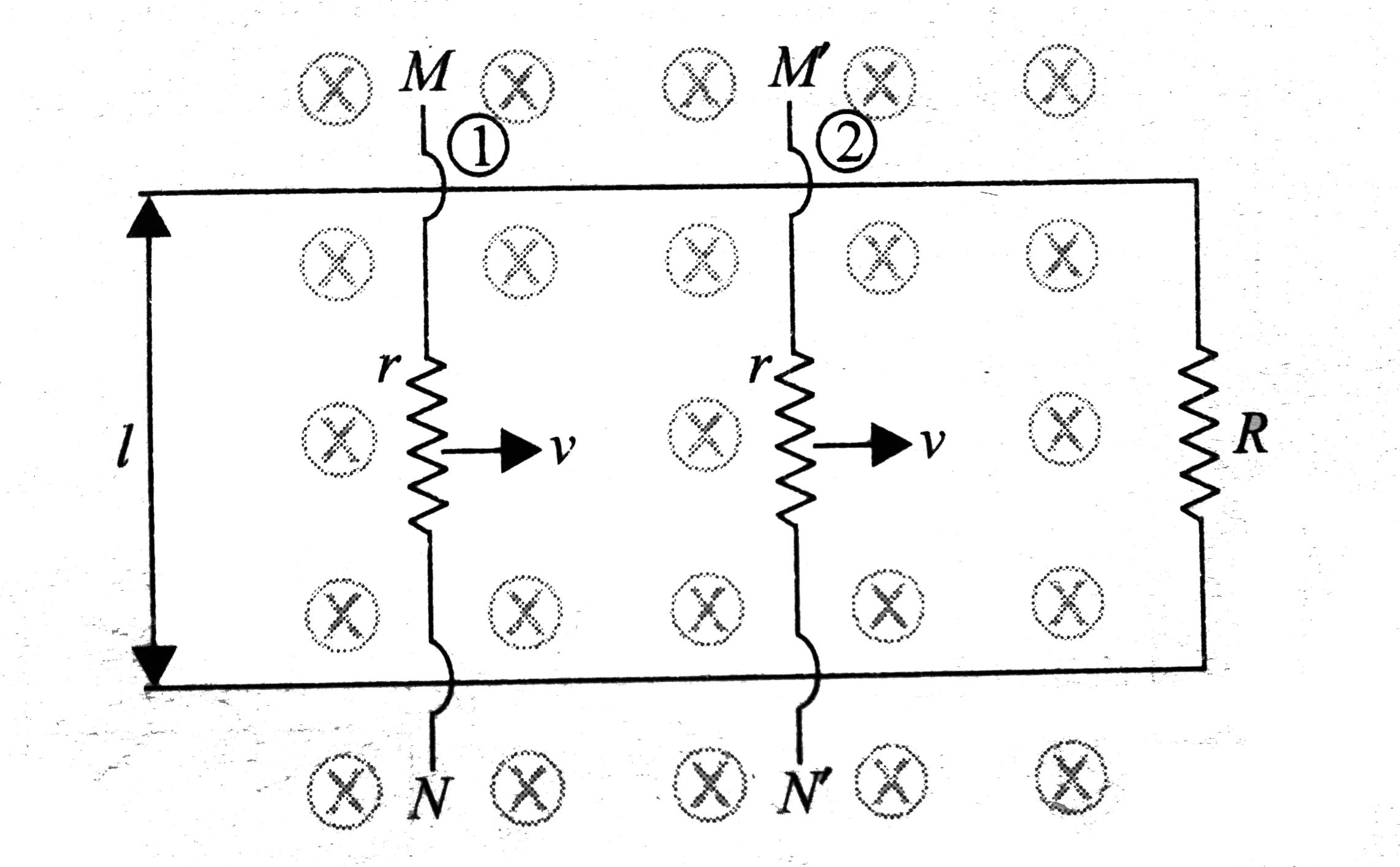
(ii). If in the previous problem resistance of values R1andR2 are connected on both ends as shown in Fig. current I, flowing through resistance R1 is given by
(a) BlR2(v1r2−v2r1)R1R2(r1+r2)+r2r1(R1+R2)
(b) BlR2(v1r2+v2r1)R1R2(r1+r2)+r2r1(R1+R2)
( c) BlR2(v1r2−v2r1)R1R2(r1−r2)+r2r1(R1−R2)
(d) BlR2(v1r2−v2r1)R1R2(r1+r2)−r2r1(R1+R2)
The correct Answer is:A
(ii) ( a). Case I
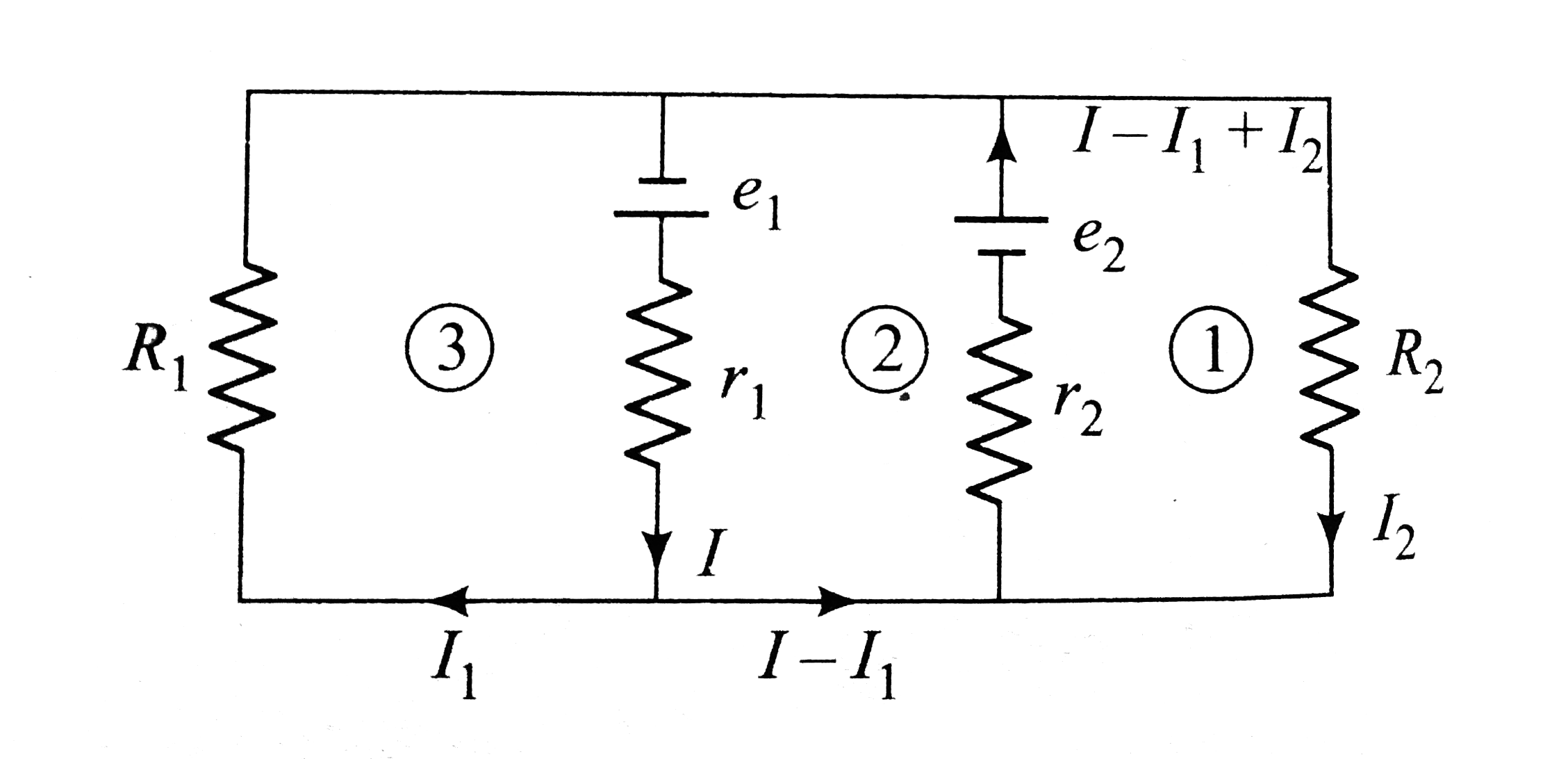
I=eR+(r/2)=BlvR+(r/2)
Case II
−(I1−I')R−I1r+e=0 For loop (1) (i)
r(I−(1)+U')=2e For loop (2) (ii)
Solve to get, I1=I'=eR
Hence current in 'R' is zero. ltbr
(ii). e1=Blv1,e2=Blv2
For (1) → e2=(I−I1+I2)r2+I2R2
For (2) → e1+e2=(I−I1+I2)r2+Ir1
For (3) → e1=Ir1+I1R1
Solve to get I1=BlR2(v2r2−v2r1)r1R2(r1+r2)+r2r1(R1+R2)
Related Playlists
- BOOK - CENGAGE PHYSICSCHAPTER - ELECTROMAGNETIC INDUCTIONEXERCISE - Exercises Integer9videos
ELECTROMAGNETIC INDUCTION
- BOOK - CENGAGE PHYSICSCHAPTER - ELECTROMAGNETIC INDUCTIONEXERCISE - Archives Fill In The Blanks3videos
ELECTROMAGNETIC INDUCTION
- BOOK - CENGAGE PHYSICSCHAPTER - ELECTROMAGNETIC INDUCTIONEXERCISE - Exercises Asserton - Reasoning8videos
ELECTROMAGNETIC INDUCTION
- BOOK - CENGAGE PHYSICSCHAPTER - ELECTROMAGENTIC INDUCTIONEXERCISE - QUESTION BANK40videos
ELECTROMAGENTIC INDUCTION
- BOOK - CENGAGE PHYSICSCHAPTER - ELECTRON,PHONTS,PHOTOELECTRIC EFFECT & X-RAYSEXERCISE - dpp 3.315videos
ELECTRON,PHONTS,PHOTOELECTRIC EFFECT & X-RAYS
Similar Questions
Two long parallel conducting rails are placed in a uniform magnetic field. On one side, the rails are connected with a resistance R. Two rods MNandM'N' each having resistance r are placed as showing in Fig. Now on the rods MNandM'N' forces are applied such that the rods move with constant velocity v.
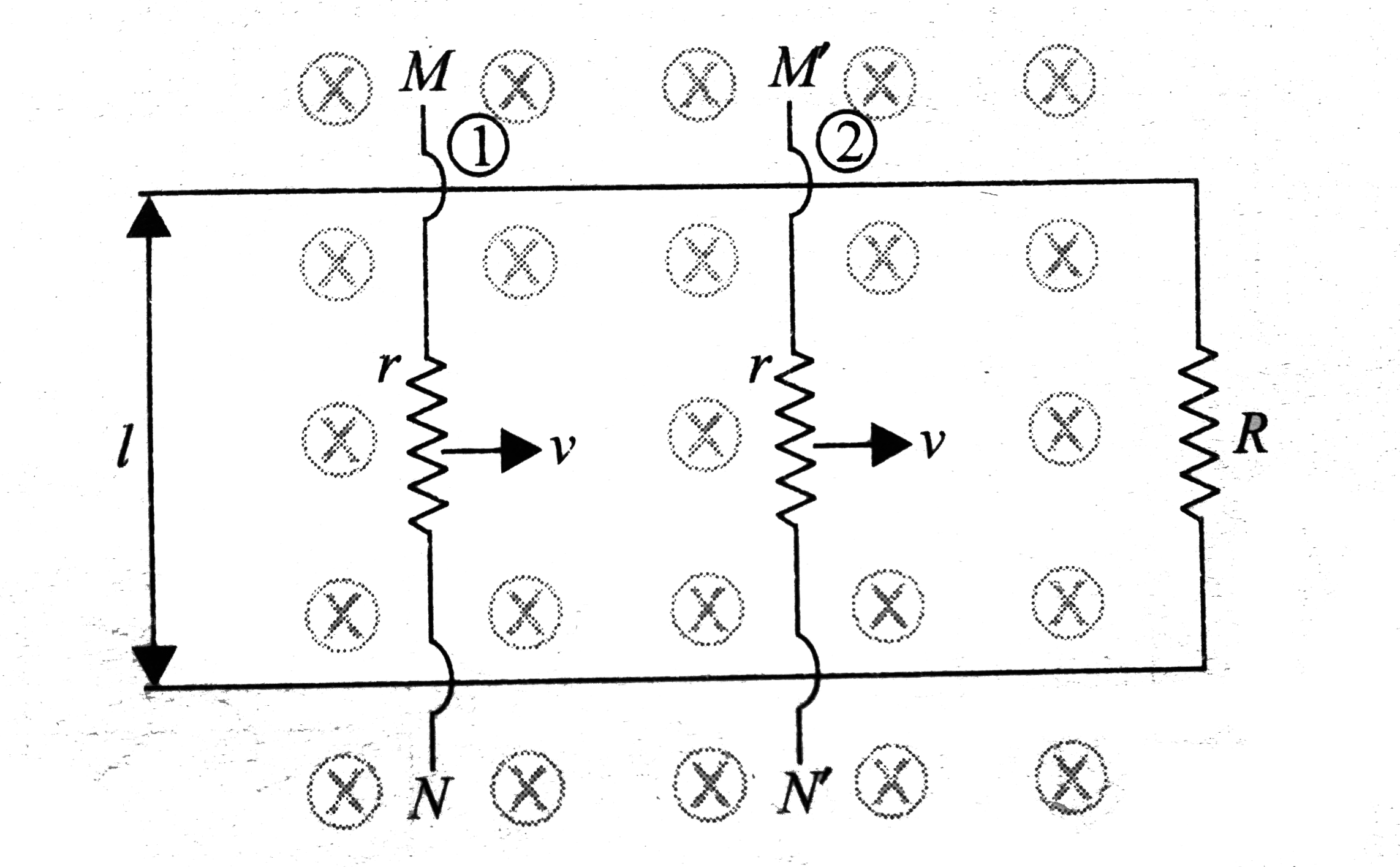
(i). The current flowing through resistance R if the rod Mn moves toward left and the rod M'N' moves toward the right isView SolutionTwo long parallel conducting rails are placed in a uniform magnetic field. On one side, the rails are connected with a resistance R. Two rods MNandM'N' each having resistance r are placed as showing in Fig. Now on the rods MNandM'N' forces are applied such that the rods move with constant velocity v.

(i). The current flowing through resistance R if the rod Mn moves toward left and the rod M'N' moves toward the right isView SolutionTwo long parallel conducting rails are placed in a uniform magnetic field. On one side, the rails are connected with a resistance R. Two rods MNandM'N' each having resistance r are placed as showing in Fig. Now on the rods MNandM'N' forces are applied such that the rods move with constant velocity v.
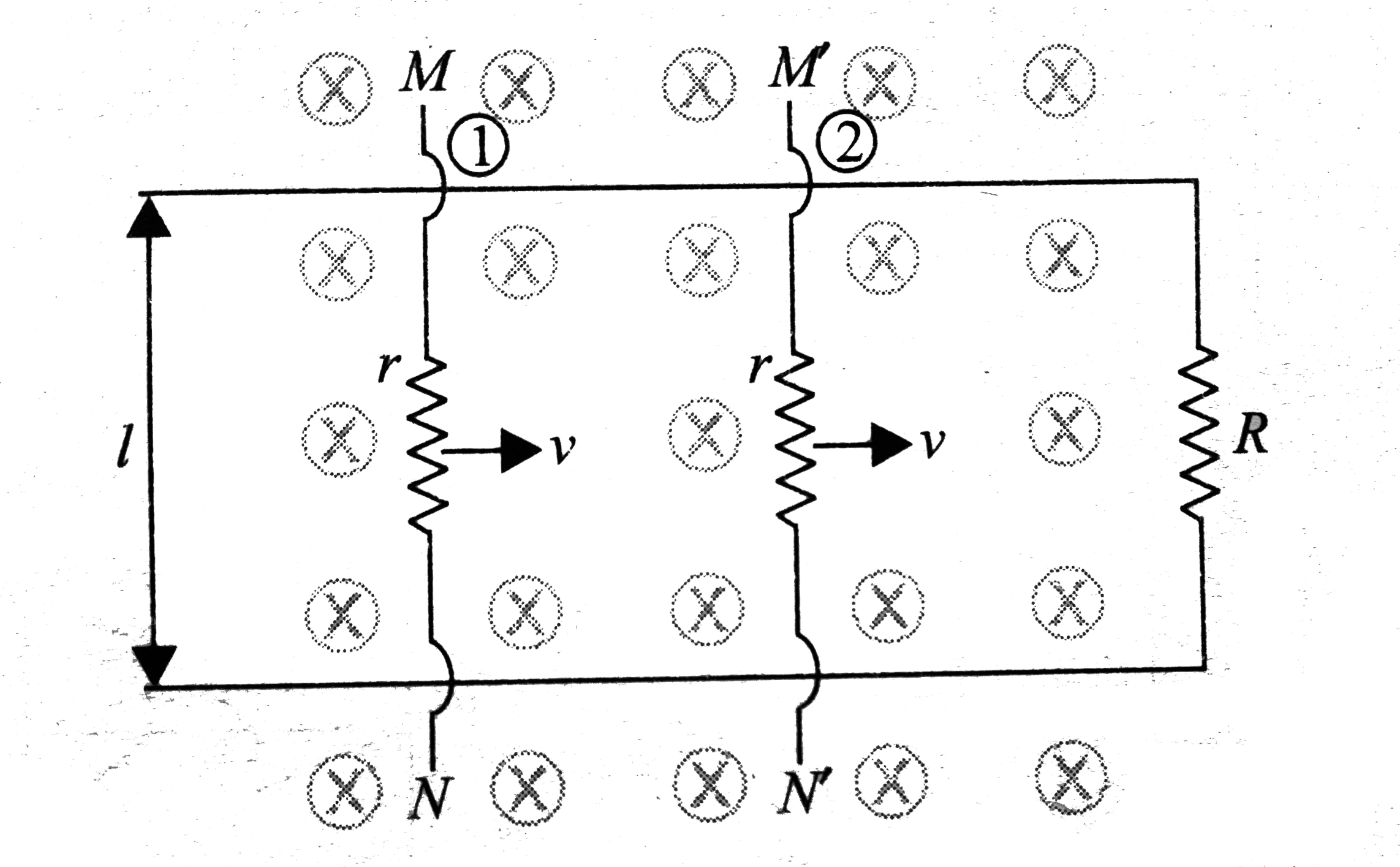
The current flowing through resustance R if both the rods move with the same speed v toward right isView SolutionTwo long parallel conducting rails are placed in a uniform magnetic field. On one side, the rails are connected with a resistance R. Two rods MNandM'N' each having resistance r are placed as showing in Fig. Now on the rods MNandM'N' forces are applied such that the rods move with constant velocity v.

The current flowing through resustance R if both the rods move with the same speed v toward right isView SolutionA conducting rod of length l is moving in a transverse magnetic field of strength B with veocity v. The resistance of the rod is R. The current in the rod is
View SolutionA conducting rod of length l is moving in a transverse magnetic field of strength B with veocity v. The resistance of the rod is R. The current in the rod is
View SolutionA uniform rod of mas m is moving with constant velocity v0 in a perpendicular uniform magnetic field B as shown. The resistance of rod is r . The current flowing through rod, RI and R2 will be
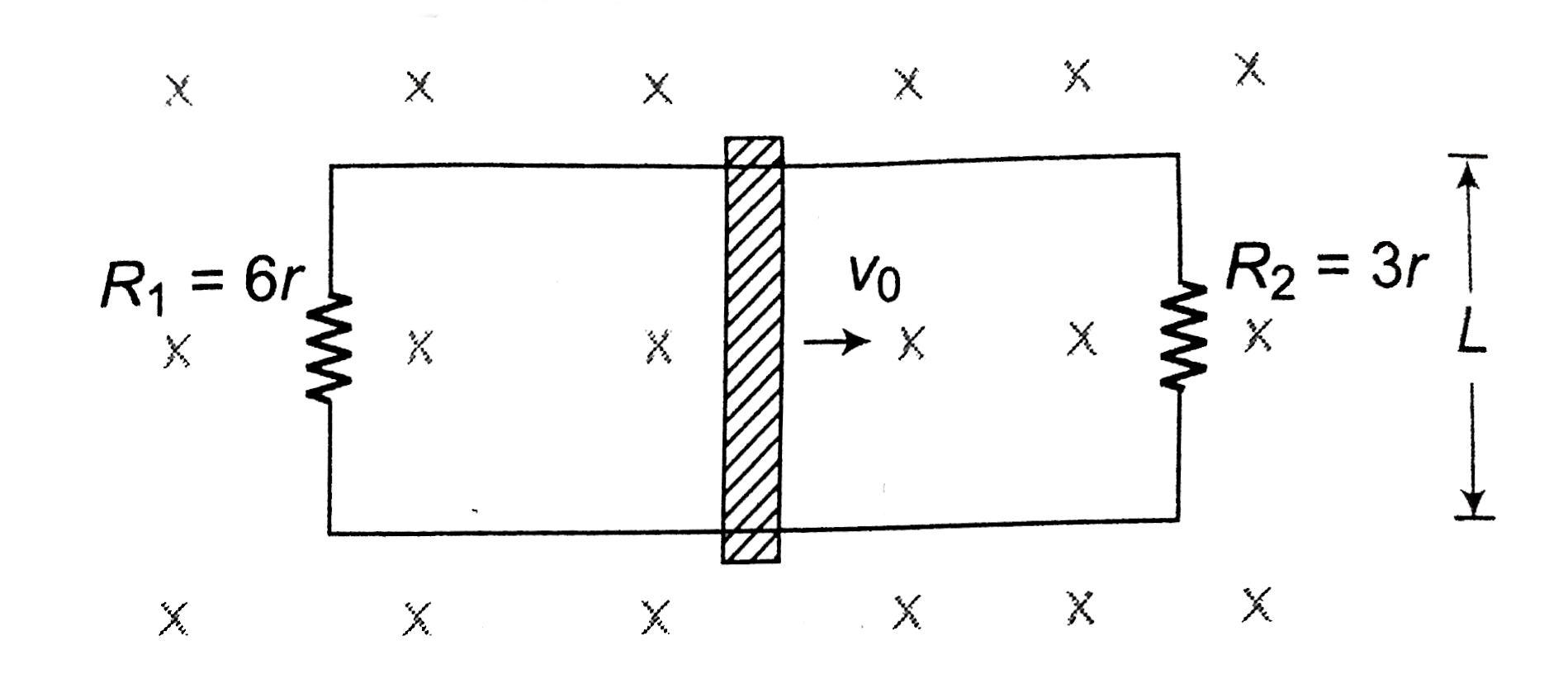 View Solution
View SolutionA conducting wire ab of length l, resistance r and mass m starts sliding down a smooth vertical, thick pair of perfectly conducting rails as shown in the figure. A uniform magnetic field B exist in the space in the figure. A uniform magnetic field B exist in the space in a direction perpendicular to the plane of the rails. What will be the final constant speed of wire?
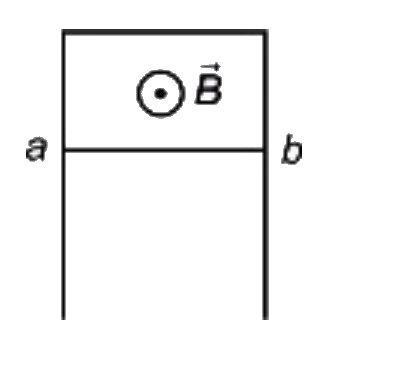 View Solution
View SolutionA wire cd of length l and mass m is sliding without friction on conducting rails ax and by as shown. The verticle rails are connected to each other with a resistance R between a and b. A uniform magnetic field B is applied perpendicular to the plane abcd such that cd moves with a constant velocity of
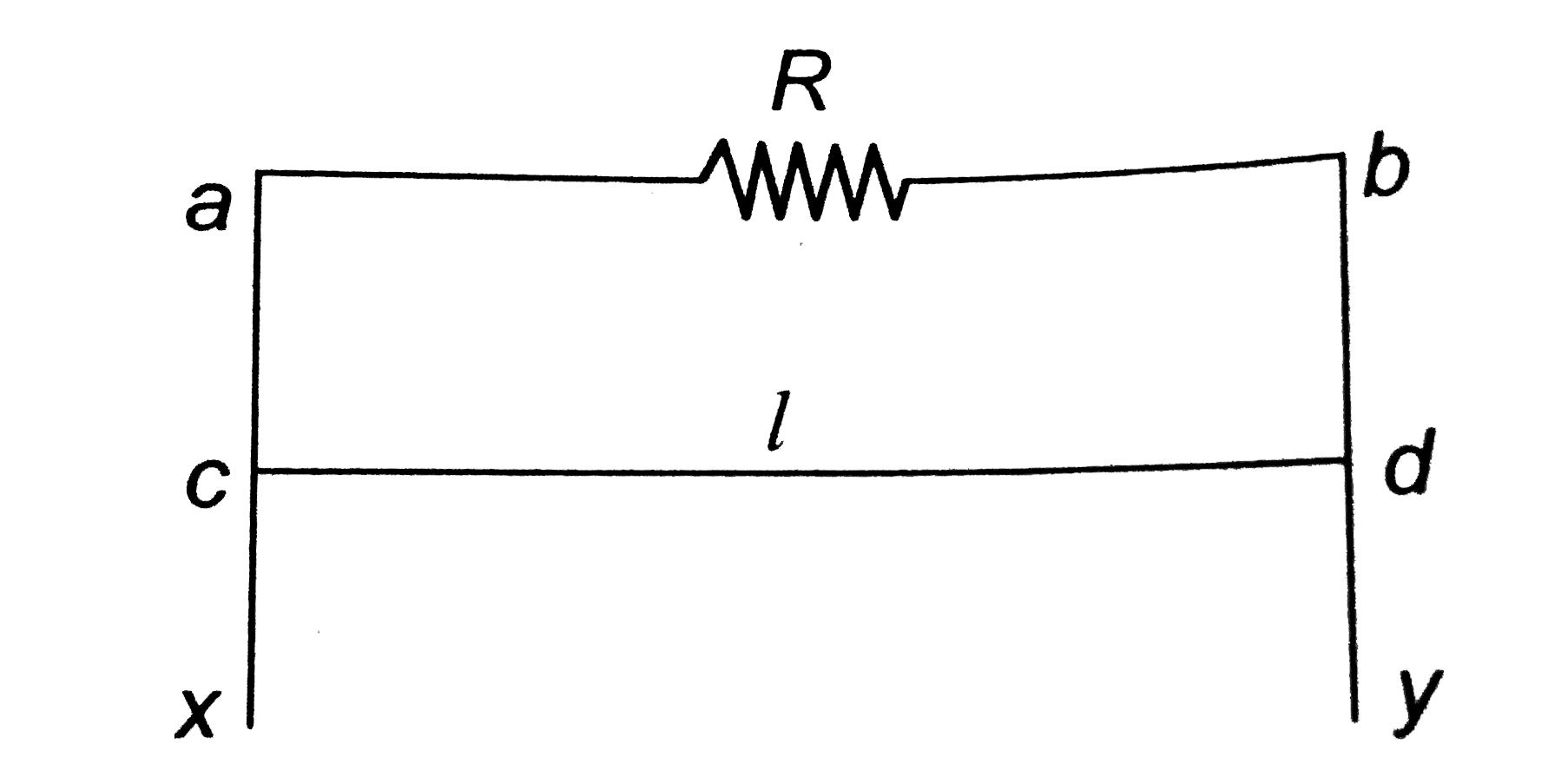 View Solution
View SolutionA rod with resistance R lies across frictionless conducting rails in a constant uniform magnetic field →B, as shown in the following figure. Assume the rails have negligible resistance. The magnitude of the force that must be applied by a person to pull the rod to the right at constant speed v is
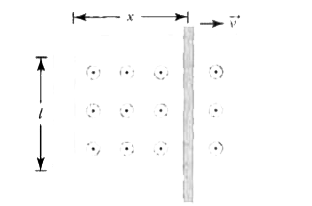 View Solution
View Solution

